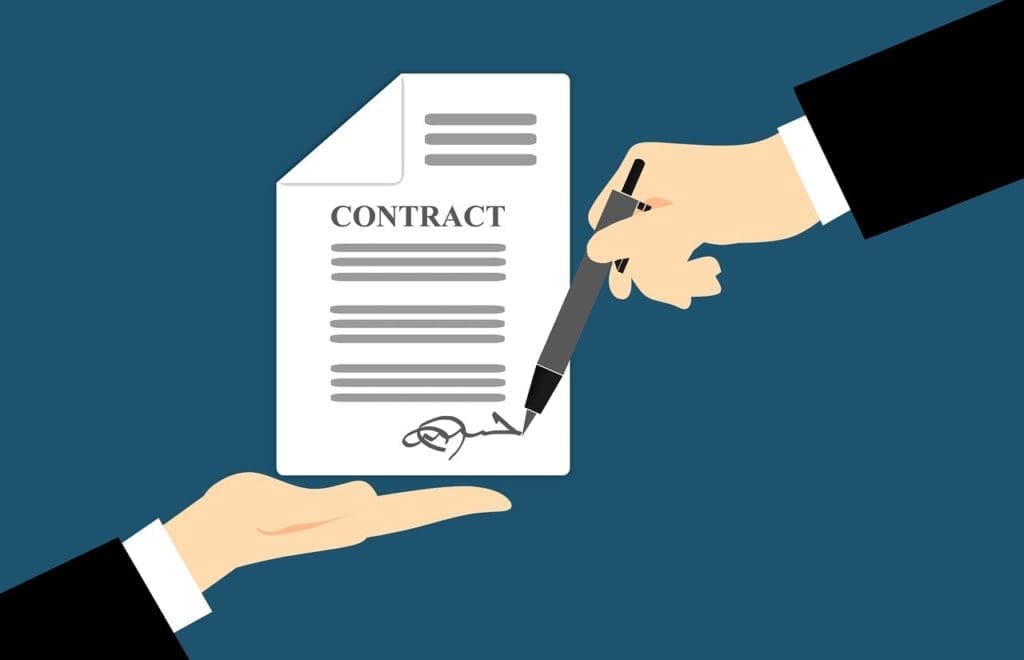When it comes to estate planning and legacy planning, most individuals focus on passing down their assets to their children and heirs. However, for those seeking to establish a legacy that will endure for generations, the concept of a dynasty trust becomes particularly intriguing.
A dynasty trust, an integral part of estate planning, is an irrevocable trust that offers similar tax advantages and asset protection as other trust types, but with a remarkable distinction—it can span multiple generations. Often referred to as perpetual trusts, dynasty trusts are meticulously designed to last indefinitely, as long as the trust's assets remain intact. Given the long-term nature of a dynasty trust, it is imperative to establish it with utmost care and attention to detail. Once the trust is in place, its rules generally cannot be altered, underscoring the importance of getting everything right from the beginning.

Setting up a dynasty trust follows a process akin to that of any other trust. The grantor, who serves as the trust's creator, transfers funds and assets into the trust during their lifetime or, in the case of a testamentary dynasty trust, after their death. Once the trust is funded, it becomes irrevocable, and the rules established by the grantor become fixed. Modifying these rules is only possible under specific state laws that govern trust modifications.
When establishing a dynasty trust, thoughtful consideration must be given to selecting the most suitable trustee. It is common practice to appoint an independent trustee, such as a bank or trust company, to administer the trust throughout its existence. Although a beneficiary can serve as a trustee, this approach may give rise to potential issues concerning taxes and creditor protection. A beneficiary-controlled trust can have significant implications for income and estate taxes, depending on the extent of the beneficiary's powers. It can also impact the level of asset protection provided to the beneficiary and expose family wealth to the risk of misappropriation. On the other hand, a corporate trustee, such as the dynasty trust itself, possesses indefinite legal life and can ensure uninterrupted administration across generations. Corporate trustees typically charge an annual fee based on the value of assets held in the trust.
While trusts are generally beneficial for individuals across various financial backgrounds, there are exceptions, and the dynasty trust is one of them. Establishing a dynasty trust does not necessitate grand dynastic aspirations akin to illustrious families like the Medici or the House of Windsor. However, it is most commonly utilized by families with substantial wealth. While there are no legal requirements regarding the minimum amount of funds needed to establish a dynasty trust, from a practical perspective, it is typically suitable for those with sufficient wealth and assets capable of sustaining multiple generations, taking into account the financial needs and responsibilities of the beneficiaries. Grantors who are concerned about future generations beyond their children often opt for dynasty trusts as part of their estate and legacy planning. Additionally, dynasty trusts can prove invaluable for families that own a family business and desire to maintain its continuity within the family lineage.
Statistics reveal that many family businesses fail to survive beyond the second or third generation, but a dynasty trust can significantly enhance the chances of success. By placing shares of the business into the trust, the grantor can provide for multiple generations of beneficiaries while ensuring the seamless continuation of business operations through professional trustee management. The trustee assumes responsibility for managing the business affairs and maintaining continuity, while the beneficiaries reap financial benefits. Furthermore, the grantor can include specific terms within the trust to guarantee competent business management, such as mandating the trustee to establish an advisory council functioning as a board of directors.
In the realm of estate planning and legacy planning, one of the notable advantages of establishing a dynasty trust is the potential for significant tax benefits. By leveraging the federal estate tax exemption amount (which currently stands at $12.06 million per individual in 2022, or twice that amount for couples) to fund a dynasty trust, you can effectively transfer money and property directly to your grandchildren while avoiding gift or generation-skipping transfer (GST) taxes. To achieve this, you would place accounts and property into the trust and file a gift tax return to allocate appropriate tax exemptions to the trust or pay a portion of the wealth transfer tax. This strategic approach ensures that these assets are not included in your taxable estate, nor in the taxable estates of your beneficiaries, provided that the trust is fully exempt from GST tax.
Furthermore, utilizing trust funds to cover a beneficiary's living expenses or investing in a home for their benefit can also help reduce their taxable estate. Additionally, when a dynasty trust is properly drafted, accounts and property left to your loved ones within the trust can enjoy protection from creditors and divorce courts. In contrast, gifting money outright may not offer these same protective benefits.
It is worth noting that dynasty trusts are not available in every state due to the rule against perpetuities, a common law principle that restricts the duration of controlled property interests, including those established within trusts. This rule, which was not specifically created for trusts, aims to prevent individuals from exerting control over property ownership for an extended period after their demise through legal instruments like deeds and trusts. However, many states have modified or even eliminated this rule, as its interpretation can be complex. With the guidance of an experienced estate planning attorney, you may be able to establish a trust in a state where you do not reside, taking advantage of more favorable laws.
If you are considering the establishment of a dynasty trust, our firm can connect you with a skilled estate planning attorney who can guide you through the process. During your consultation, crucial factors such as selecting a trustee and beneficiaries, implementing tax and creditor protection strategies, understanding state laws pertaining to perpetual trusts, and aligning the dynasty trust with your comprehensive estate plan will be thoroughly discussed. Taking this initial step will enable you to secure your legacy and ensure the preservation of your wealth for future generations. To embark on this journey, please reach out to us, and we will be delighted to assist you.
We extend our warmest congratulations on your new home purchase. Whether this is your first time buying a home or an upgrade/downsize, acquiring a new home is a significant event that brings about change in your life. Properly prepare for the worst by protecting your newest accomplishment. Here are three essential tips to keep in mind now that you have the keys to your new home, including important considerations for estate planning.

1. Make Sure to Update Your Address
After moving into your new home, it is crucial to update your address with the relevant authorities. Start with visiting your local United States Postal Office to obtain a form for change of address. Alternatively, you can update your address online. This step will help the postal service forward your mail to your new address.
It is also a crucial step in protecting your property to update your address with the Internal Revenue Service (IRS) by filling out Form 8822. This will ensure that you receive all important tax notices and refunds. Additionally, make sure to update your address with your local state tax agency.
2. Ensure Consistency Between Your Home Title and Estate Plan
One aspect of new homeownership that often goes overlooked is the need to align your home title with your estate planning objectives. After purchasing your new home, review the deed to confirm how the property is titled. Next, review your estate planning documents to ensure the property has been titled correctly to achieve your estate planning goals.
For instance, if your previous plan included a specific provision for the distribution of your old property, you will need to update this provision to reflect the current status. Similarly, if you have a trust-based estate plan to avoid probate, you will need to confirm that your new property is titled in the name of the trust and not in your individual name. Ensuring consistency between your home title and estate plan will help protect your assets and ensure your wishes are carried out effectively.
3. Review Your Life Insurance Policy and Beneficiary Designations
If you have a mortgage payment to make on your new home, it's likely you'll have a large monthly expense to pay off each month. To safeguard your loved ones, it is important to review your life insurance coverage. Ensure you have adequate life insurance coverage to address the mortgage payment in the event of your passing, particularly if you have a surviving spouse or children who are likely to remain in the home. Even if they decide not to reside in the property, life insurance can offer valuable resources during a potentially emotionally difficult period. Even if they choose not to stay in the home, life insurance can provide valuable assets during what can be an emotionally challenging time.
It's also a good idea to review your beneficiary designations. Life changes can happen quickly, and this may be overlooked. If your designations don't match up with the rest of your estate plan, you might inadvertently disinherit a family member or have the money go directly to an individual without any guidance.
Finally, with your new home comes the need for homeowner's insurance. Contact your insurance agent to confirm that you are receiving all eligible discounts. Many insurance providers offer package discounts when you combine services. By already having car insurance with the same company as your homeowner's insurance, you may qualify for a lower rate compared to purchasing each policy separately. Additionally, homeowners often receive discounts that renters do not.
We understand that buying a new home is a significant milestone, and we are here to assist you. If you need help aligning your new purchase with your estate planning goals, contact us today. We can ensure that your new home and estate planning are aligned to achieve your objectives, including the important aspect of estate planning for homeowners.

Every child is a precious gift, and as parents or grandparents, we strive to plan for their future, anticipating their needs and aspirations. However, families with special needs children or grandchildren face additional responsibilities in ensuring their loved one's future is secure, fulfilling, and supported. To ensure a flourishing future for your special needs child or grandchild, estate planning measures focused on their unique circumstances are essential. We recommend the following steps:
When it comes to estate planning, creating a Special or Supplemental Needs Trust (SNT) for your special needs child or grandchild should be a top priority. An SNT is a specialized trust designed to set aside funds and assets for the benefit of a beneficiary who may qualify for public assistance due to their disabilities. It can be established as a standalone trust or added to your existing trust.
It's important to note that government programs providing aid to disabled individuals have strict criteria regarding the amount of money and property a person can own while receiving benefits. Structuring any inheritance your special needs beneficiary may receive in a way that doesn't disqualify them from obtaining government benefits is crucial. Even if they are not currently receiving government benefits, considering the possibility of future needs is essential. To ensure all opportunities are available, it is vital that the trust is meticulously drafted by a lawyer well-versed in the eligibility requirements for government benefits.
An SNT not only provides financial security but also allows you to appoint a care manager or advisory committee. The care manager serves as an advocate for your special needs beneficiary, overseeing their well-being periodically or daily, depending on their level of care requirements. An advisory committee, comprising family members, friends, and professionals, can provide guidance to the trustee on the beneficiary's needs and the best use of the funds.
Additionally, the SNT can include a statement of intent, outlining the trust's purpose and how the funds should be utilized. This section acts as a safety net in case changes in the law make the beneficiary ineligible for government benefits. It allows for modifications to ensure your original intentions are met, even in the face of unforeseen circumstances.
In addition to establishing an SNT, putting your instructions in writing is crucial to ensure your wishes are carried out as intended. Consider creating a letter or memorandum of intent that provides guidance to your trustee on managing the trust after your passing. Although not legally binding, this document offers valuable insights into your true intentions. You can include details on how the funds should be used in accordance with government rules, specific goals you would like the beneficiary to achieve, and the standard of living you envision for them.
Supporting a special needs child or grandchild can be financially demanding, and it's important to consider how to sustain their care once you pass away. Life insurance can be a valuable tool in ensuring there will be sufficient funds for the trustee to use for their benefit. By designating the SNT as the beneficiary, you can provide a lump sum payment that is not subject to the same tax liabilities as retirement accounts.
The SECURE Act has brought changes to how beneficiaries can receive distributions from inherited IRAs, potentially impacting the financial support available to your special needs beneficiary. However, the Act also recognizes "eligible designated beneficiaries," including individuals with disabilities, who can still receive distributions over their life expectancies. Congress has established rules that allow the life expectancy of disabled beneficiaries to be used for certain types of trusts. If you have a substantial retirement account, it is crucial to discuss your distribution options to maximize benefits for all your beneficiaries.
We understand that securing a bright future for your special needs child or grandchild is of utmost importance to you. Our priority is to work with you in developing a comprehensive plan that will guarantee continued care and well-being for your loved ones. Please do not hesitate to reach out to us to schedule an appointment so that we can begin this process together.
When Elvis Presley, the King of Rock and Roll, passed away in 1977, he left behind a complicated legacy, just like his famous dance moves. His estate, including the iconic Graceland, eventually ended up in the hands of his only child, Lisa Marie Presley. However, the future of Elvis's legacy and the fate of his estate face challenges ahead. These challenges involve Lisa Marie's personal financial issues, a significant age gap among her children, and even a legal dispute initiated by her mother, Priscilla Presley. The unfolding of this captivating saga will determine the course of Elvis's rockin' legacy.

From Elvis to Lisa Marie: Inheritance and Financial Legacy
Lisa Marie, born in 1968 to the legendary rock and roll icon Elvis Presley and his wife Priscilla Presley, had to face the tragic loss of her father at a young age. Sadly, Elvis passed away at forty-two due to a heart attack. Fast forward to January 2023, and Lisa Marie herself succumbed to heart problems at the age of fifty-four.
Despite Elvis's untimely departure, his legacy has continued to thrive, with his estate earning an impressive $400 million in the previous year alone. The value of the estate skyrocketed to over $1 billion, thanks in part to the 2022 Elvis biopic movie. This created a substantial financial legacy for Lisa Marie to inherit.
The Elvis Presley Trust
When Elvis Presley passed away, his estate was placed in a trust with Lisa Marie, his grandmother, and his father as beneficiaries. According to the trust, Lisa Marie's inheritance was held in trust until she turned twenty-five in February 1993. After that, the trust dissolved automatically, and Lisa Marie inherited $100 million, including Graceland, her childhood home.
Today, Graceland stands as a museum and popular tourist attraction, generating over $10 million annually. To manage Graceland and the rest of Elvis's estate, which includes Elvis Presley Enterprises, Inc. (EPE), Lisa Marie established the Elvis Presley Trust. Until 2005, Lisa Marie served as the owner and chairperson of EPE's board, but she later sold 85 percent of its assets.
Graceland and the Living Trust
Graceland, the iconic mansion that was once Elvis Presley's residence, has become a symbol of his legacy and a beloved tourist destination. After Lisa Marie inherited it, she made it clear that Graceland would always remain within the family.
Lisa Marie's children, Riley Keough, Harper Lockwood, and Finley Lockwood, are set to inherit her fortune and properties through a living trust. However, Lisa Marie's son, Benjamin Keough, tragically passed away in 2020.
Considering that it's unclear whether Lisa Marie had a separate will in place, the living trust, an estate planning document, will play a significant role in determining the distribution of her assets. Through the living trust, individuals can transfer ownership of accounts and property to a separate entity, the trust, which they control while alive. The trust also names a successor trustee to manage the accounts and property after their passing.
Priscilla Presley's Trust Challenge
A challenge to Lisa Marie's living trust has emerged from an unexpected source—her own mother, Priscilla Presley. The legal dispute revolves around a 2016 amendment to the trust, which removed Priscilla and a former business manager as trustees and replaced them with Lisa Marie's daughter, Riley Keough, and her late son, Benjamin Keough.
Navigating the Challenges: Estate Planning and Protecting Your Legacy
Priscilla's claim challenges the validity of the living trust amendment, citing violations of legal requirements. She highlights the lack of proper notification, absence of witnesses or notarization, and even a misspelling of her name in the document. Adding to her concerns, Priscilla alleges that her daughter's signature appears suspiciously different from her usual signature. Consequently, she has sought the court's intervention to invalidate the amendment that removed her as the trustee.
Lisa Marie's Financial Struggles
Recent legal documents indicate that Lisa Marie faced financial challenges before her passing, despite inheriting $100 million at the age of twenty-five. She held approximately $95,000 in cash and possessed various assets such as bonds and stocks valued at $715,000. Although she earned over $100,000 per month from EPE, she also carried a $1 million tax debt and incurred monthly expenses of $92,000. Furthermore, her ex-husband, Michael Lockwood, reopened a lawsuit seeking $4,600 per month in child support.
By 2016, Lisa Marie's $100 million trust had significantly dwindled to just $14,000 in cash. Her former manager, Barry Siegel, faced allegations of mismanaging her finances, which resulted in a decline of her wealth. Court records reveal that Lisa Marie was burdened with a $16.67 million debt at that time. However, in 2019, Siegel countered the claims and asserted that the sale of her 85 percent stake in EPE helped resolve over $20 million in debts.
Potential Legal Challenges for the Lisa Marie Presley Estate
The legal ambiguity surrounding Lisa Marie's estate gives rise to numerous potential legal issues that will likely require judicial resolution. One such challenge is Priscilla's claim against the living trust amendment. If her challenge is successful, the amendment would be considered void, making Priscilla the successor trustee responsible for managing the trust's assets and funds instead of Lisa Marie's daughter, Riley. This matter would necessitate court intervention for resolution.
Creditor Claims
Although it remains uncertain whether Lisa Marie had outstanding debts, if she did, creditors could make claims against her estate. The estate would need to determine whether to accept or reject these claims. Rejecting them could lead to legal disputes. Creditors hold priority over beneficiaries, which means that Lisa Marie's accounts and property, including Graceland, might need to be sold to satisfy any outstanding debts. Additionally, even after the debts are settled, the estate may still be subject to estate taxes, which could further complicate matters if creditors decide to initiate lawsuits.
Her Daughters' Inheritance
Assuming the estate possesses sufficient funds to settle debts without selling Graceland, Lisa Marie's three daughters, Riley, Harper, and Finley, are poised to inherit the mansion and any remaining property or funds. However, the upkeep and tax costs associated with Graceland surpass $500,000 annually. It remains uncertain whether the daughters would collectively agree to bear these expenses and preserve the Elvis legacy within the family.
The daughters have the option to sell Graceland, but this decision could ignite internal conflicts if even one daughter wishes to pursue a sale. Additionally, crucial details regarding the ages of the daughters and their inheritances remain unknown. Did Lisa Marie establish a trust to hold her twin daughters' inheritances until they reach a specific age, as her father did for her? Or does the trustee possess discretionary power over the funds? Moreover, depending on the outcome of the trust challenge, will the trustee ultimately be Riley or Priscilla?
Furthermore, the question of whether Lisa Marie distributed her estate equally among her daughters remains unclear, as there is no legal requirement for equal distribution.
Control What You Can with an Estate Plan
The sudden and tragic passing of Lisa Marie Presley serves as a reminder that death can come unexpectedly. However, through estate planning, we can exert some control over our legacy.
Crafting a comprehensive estate plan can help alleviate some of the uncertainty and provide peace of mind to both ourselves and our loved ones. If you're ready to start planning for the future, please reach out to our office to schedule a consultation.

Prepare to be amazed! May is not just any ordinary month - it's National Home Remodeling Month, the time of year when the National Association of Home Builders officially recognizes the tremendous value of home improvement projects. Springtime comes with spring cleanings and home improvement projects, but can also be a good time to consider updating your estate planning documents.
If you need to make small updates to your estate planning documents, such as changing the names of beneficiaries or decision makers, you may wonder whether you can take care of these changes on your own or if you should seek the assistance of a professional. Here are some things to consider before choosing which option is best for you:
If Your Name Changes
If you've changed your name due to marriage and/or your own personal preference, and your estate planning documents don't need to be changed, you may only need to keep copies of any legal paperwork reflecting the name change. Keep copies of these documents together with your estate planning documents. If you've remarried and want to change your name in your estate planning information, or if a trust you established has your old name in the title, it's best to consult an industry professional, such as an attorney, to ensure that the name change is properly handled.
If a Beneficiary’s Name Changes
Wondering what you should do if your beneficiary's name changes? Whether it is due to marriage and/or personal preference, staying on top of this information can save you from running into issues later down the road. While updating your estate planning documents is not necessarily critical, it may be necessary for your beneficiary to prove their identity with a court order, marriage certificate, or birth certificate. It is important to avoid making changes directly on your estate planning documents, such as crossing out a name and writing in a new one. This has resulted in confusion and has even prompted litigation in the past. Courts have had to weigh in on these types of edits to estate planning documents to determine their validity and intent. Even though it may seem harmless, unforeseen consequences can often arise when attempting to edit legal documents yourself.
Adding or Removing a Beneficiary
When events occur such as the birth of a child or the passing of a beneficiary, you may wonder if you need to update your estate planning documents. The answer is that it depends on the language in your documents. Some estate planning documents are drafted to anticipate future additions or removals of beneficiaries by name. It is highly important to seek legal advice before making any changes to your estate planning documents, as serious legal consequences can result from attempting to do so on your own.
Making changes without legal advice could result in unintentionally cutting off people from receiving an inheritance or having your property go to those who never intended to benefit. For instance, adding a spouse’s name to the list of children in your estate planning documents could lead to unintended consequences if the spouse remarries after the child’s death. The former in-law could become a beneficiary of the family trust and have certain rights regarding the trust’s administration, including the right to demand a copy of the trust documents and any financial accountancy. Once that share is paid out, the former in-law might use it in a way that it was not originally intended for, causing negative consequences from an innocent and well-meaning attempt to provide for an in-law.
Appointing New Trusted Decision Makers
In some cases, you may want to appoint new individuals to make important decisions about your property if you become incapacitated or pass away. However, it’s important to understand that certain legal documents cannot be amended easily. While it may be tempting to simply cross off the names of the people you want to remove and add new preferred decision-makers, this can actually void the document under certain circumstances.
If you need to make such important changes, it’s best to have the documents redrafted and executed with the same formalities used in the original documents, ensuring that you follow the applicable state law. For instance, your state may require multiple unrelated witnesses to the signing of a modified will, even if the change you’re making is a one-sentence amendment. The same is true for a codicil, which is an amendment to your will. Other legal documents, such as a power of attorney, a trust amendment, or restatement, may also require similar formalities, such as having your signature notarized.
Modifying Distribution Provisions
There may be times when you consider altering the distribution provisions of your will or trust by changing the percentage/fraction shares of your estate. It is important to note that this modification should be avoided when attempting to make such changes on your own. It is always advisable to consult an attorney if you wish to modify the distribution provisions of your will or trust. You must consider this amendment very carefully and execute it with strict documentation. Such a change to your estate planning documents carries the risk that a beneficiary who receives less under the amendment may challenge it and use any argument available to invalidate the changes. An experienced estate planning attorney will know the necessary steps to take to ensure that your legal documents will be honored by your beneficiaries and the courts after you pass away.
As you have seen, remodeling your estate plan without the help of a trained and experienced attorney can lead to many potential issues. When handled properly, these changes don’t have to be expensive. Your attorney can quickly and inexpensively fix some of these small issues by drafting an amendment to your estate planning documents. Other changes may require more work because the issues are considerably more complex than you first realized. In either case, with a legal professional guiding you through the process, you can be confident that you will not be leaving your loved ones with a legal mess to sort out after you are gone.
If you are uncertain about whether you need an attorney to help you modify your estate plan, we encourage you to contact us. We are happy to consult with you and help you determine what changes, if any, you may need to make.
Back in 1987, Congress recognized March as Women's History Month to celebrate the incredible contributions of women in American history across various fields. From building a strong and prosperous nation to being the backbone of their families, women have been unstoppable. Yet, in the midst of caring for others, women often neglect their own financial and estate planning. It's high time for women to prioritize themselves by crafting a solid plan that caters to their future needs, which may differ from those of their male counterparts and dependents.

Longer life expectancies. According to Social Security Administration data, in 2021, women had an average life expectancy of 79.5 years compared to 74.2 years for men. As a result, it is important for women to create an estate plan that accounts for additional years of living expenses during retirement, healthcare costs, and possibly long-term care costs. As women age, there may be a greater possibility that they could become incapacitated and need someone to act on their behalf to make financial and healthcare decisions. Documents such as financial and healthcare powers of attorney and living wills authorize a person they trust to make decisions or take action for them if they are not able to act for themselves. Some women may not only own their own assets but also inherit wealth from both their parents and a spouse who dies before them, and if so, they need a financial and estate plan to optimally preserve and transfer this wealth. Because women may outlive their spouses, they also may be responsible for administering their spouse’s estate or become the sole surviving trustee of a joint trust. These duties may be difficult for a woman who is experiencing health issues that often occur at an advanced age, and this possibility should be addressed in their estate planning. For example, a woman concerned that she will be unable to handle administering her trust at an advanced age can name a co-trustee or successor trustee to administer it if she is no longer able to do so.
Lower earnings. According to U.S. Census Bureau data, women continue to earn less than men, and the pay gap widens as they age. In addition, because some women have shorter employment histories due to time off to raise children or care for aging parents, they may have less saved for retirement. As a result, it is important for them to take steps to protect their money and property from lawsuits or creditors’ claims. For example, a woman could transfer her money and property to an irrevocable trust. Because she is no longer the legal owner of the property, a creditor cannot reach it to satisfy claims against her so long as the trust is properly drafted to include appropriate distribution standards and administrative and other provisions. The woman may be a discretionary beneficiary of the trust, and the trustee may distribute the funds she needs for living expenses. Additionally, because they have less money and property during their retirement, women need to have a solid plan in place to make sure that they are able to financially provide for their loved ones upon their death and that unnecessary costs and expenses are minimized to the extent possible.
Care for loved ones. Many women are caregivers for minor children, adult children with special needs, or aging parents. As a result, they are often concerned about who will care for their loved ones if they are no longer able to do so. If a spouse or sibling is not available to provide care, they need to make sure that another family member or trusted individual can be the caregiver (sometimes called a guardian of the person) for their loved one. The same individual—or someone else—can serve as the guardian of the loved one’s estate (sometimes called a conservator or guardian of the estate) to manage the inheritance for their benefit. In the case of a child with special needs, if no family member is able to take on the responsibility of their care, a group home or assisted living facility may be the best choice. A special needs trust may need to be established to ensure that funds are available for the child’s care but do not decrease the amount of government benefits they are eligible to receive.
You have accomplished a lot in your life! Celebrate your accomplishments and contributions during Women’s History Month by contacting us to set up an appointment to create an estate plan that provides for your own future needs and those of the people you love. You deserve the peace of mind that comes with knowing your future is secure.
Many Northern Nevadans know the dangers that come along with this time of year. A 2019 statistic showed that 17% of all accidents happen during winter conditions, highlighting an increased chance for individuals to experience an accident due to extreme weather changes. Ultimately, no matter how long you’ve lived in the region, less sunlight, alongside rain, snow, and black ice creates challenges for anyone driving on the road. While no one ever thinks they will fall victim to an accident, knowing what to do after a fender bender is crucial to ensuring a headache-free experience.

Following these guidelines can help you document the incident calmly and efficiently.
While many people believe there is no reason to immediately report minor accidents, following these steps avoids unnecessary complications and significant penalties down the road.

If an accident occurs making you unable to speak or communicate decisions clearly, you will need to have someone talk to medical professionals on your behalf. This should be a previously planned and trusted individual who would be deemed your medical power of attorney. This person will arrange treatment with doctors until you regain consciousness, so it's crucial you've assigned this power to someone. Your medical power of attorney will expedite medical treatment in the case of an emergency. Furthermore, your medical power of attorney should know where to obtain a copy of this documentation to help expedite treatment.
Opting for minimum coverage can be detrimental to your savings and property in the event of a serious lawsuit. You and your car must be fully covered to prevent this from happening. Plus, you should speak to your insurance broker to find out if umbrella insurance makes sense for you. Umbrella insurance is a low-cost way to gain extra liability coverage and protect yourself from damages that may exceed the limits of your car insurance. Umbrella insurance ensures you have access to a bigger pool of money in the event of a car crash lawsuit against you, protecting your savings and future prosperity.
After a car accident with significant property damages and medical injuries, it may feel necessary to protect your assets from excessive lawsuit demands. You may attempt to do this by transferring funds to friends and family, but be careful because this is against the law in some states. These transfers used to protect assets won’t be ignored by the courts. If considered fraudulent, court judges have the full right and power to reverse transfers. This means that these assets can be obtained by the party in the event of a successful lawsuit against you even after being gifted to a friend or family member.
Revocable trusts are used to protect your assets and trust from creditors and lawsuits after your death. Unfortunately, while some people believe that these trusts protect their assets during their life, this is a misconception and not their design. These trusts fail to completely protect your assets because you have complete control of all assets placed in a revocable trust. Your ability to control these trusts means a judge can order you to revoke the trust to pay creditors and lawsuit judgments.

However, with the guidance of an experienced asset protection and estate planning attorney, you can use properly designed strategies to enhance protection for your assets and property. That means taking the time to sit down with an experienced attorney well before an accident occurs offers you the best chance to maximize asset protection for your estates.
SPEAK WITH AN ESTATE PLANNING ATTORNEY
Contact us today to see how AD&R can provide you with the finest legacy and wealth planning advice Northern Nevada has to offer. We help get you the proper insurance and design estate planning to help you overcome unexpected lawsuits after an accident. Give us a call today so that we can help prepare you for the perils winter might bring.
To date, twenty-four states have enacted or introduced model legislation referred to as the Uniform Voidable Transactions Act (Formerly Uniform Fraudulent Transfer Act). The full text is available on the website of the Uniform Law Commission at https://www.uniformlaws.org/committees/community-home?CommunityKey=64ee1ccc-a3ae-4a5e-a18f-a5ba8206bf49.
You’ve had your trust documents drafted and signed, now you assume your estate plan is in place and no further action is required. Unfortunately, this is not all that needs to be done to ensure your estate plan is effective. For any trust to have actual value, it needs to be funded.
The process of funding your trust is essential to leave property, cash, and other assets to your beneficiaries. Learn more about trust funding and proper titling below.
 Funding is the process of moving assets, such as money and property into the appropriate trust. To fully understand funding, imagine your trust as an empty bucket. The bucket by itself doesn’t offer much usefulness, but once you fill the bucket up, it has a purpose. Trusts function similarly in that they are only useful when they have money or property in them.
Funding is the process of moving assets, such as money and property into the appropriate trust. To fully understand funding, imagine your trust as an empty bucket. The bucket by itself doesn’t offer much usefulness, but once you fill the bucket up, it has a purpose. Trusts function similarly in that they are only useful when they have money or property in them.
The funding process involves retitling your assets in the name of your trust. Bank accounts, property, and any other assets will need to be titled in the trust’s name in order for them to be included in that trust, otherwise, it will remain empty. This can be done in one of two ways:
By doing this, your trust can be easily handed over to a successor trustee to manage in the event of your incapacitation - without the need for court intervention. Your successor trustee will have the right and responsibility to use the assets placed in the trust for you and your beneficiaries while you are unable to manage those things on your own. Fortunately, fully funded living trusts are exempt from the probate process, which provides a superior method of managing the trust for streamlined asset distribution and much more.
To properly fund your trust, you’ll need to work with the financial organizations you bank with to transfer ownership of your accounts into the trust’s name. Any real property you own will also need to be transferred into the trust’s name which may require a new deed to be signed with the correct information. Take a look at some of the common types of property that can be included or funded in your trust:
Accounts including checking, savings, money market, and certificate of deposit (CD) should all be regularly funded to your trust. To do this, you’ll need to work with the bank or credit union in which you have accounts to retitle them into your trust’s name. Commonly, you will be required to provide a certificate of trust that contains information the financial institution will need to complete the transfer. Just be sure that there are no early withdrawal penalties for retitling your CD accounts.
 Real estate may refer to your personal residence or another property (commercial, residential, or industrial) owned by you. Real property refers to the interests associated with property such as mineral or timber rights. Both types of property will require the help of an estate planning attorney to prepare the appropriate documents and ensure the property deeds are signed and sealed specifically for your trust.
Real estate may refer to your personal residence or another property (commercial, residential, or industrial) owned by you. Real property refers to the interests associated with property such as mineral or timber rights. Both types of property will require the help of an estate planning attorney to prepare the appropriate documents and ensure the property deeds are signed and sealed specifically for your trust.
Investment accounts will also need to be transferred into your trust’s name which can be accomplished through your financial advisor or broker of a custodial account. To do this, a certificate of trust is often necessary for proper retitling of your investments.
Personal effects may include items such as jewelry, furniture, clothing, photos, artwork, collections, tools, vehicles, and more. You can easily move these items into your trust by signing an assignment of personal property.
In regards to your life insurance, it’s best to name your trust as the primary beneficiary of the policy so that the trust has authority over the earnings garnered from said policy. It is then customary to name loved ones or other special persons such as a spouse, partner, or child as secondary beneficiaries. Most insurance companies have processes in place that allow these changes to be made easily. To change the primary beneficiary on your life insurance policy, contact your insurance agent to get the proper beneficiary designation forms filled out and filed.
 Retirement assets may include individual retirement accounts (IRAs) and 401k plans. Typically, it is not recommended to transfer ownership of these accounts to your trust due to the serious tax implications they pose for the plan’s owner. Before you assign your trust as the primary beneficiary on your retirement accounts, it’s crucial that you understand the potential tax consequences associated with this plan of action. Fortunately, your estate planning attorney can help you assess these risks and make the most appropriate decision for you.
Retirement assets may include individual retirement accounts (IRAs) and 401k plans. Typically, it is not recommended to transfer ownership of these accounts to your trust due to the serious tax implications they pose for the plan’s owner. Before you assign your trust as the primary beneficiary on your retirement accounts, it’s crucial that you understand the potential tax consequences associated with this plan of action. Fortunately, your estate planning attorney can help you assess these risks and make the most appropriate decision for you.
The most common types of property are listed above, but these aren’t the only assets that you may want to be funded into your trust. To ensure that your legacy goes to the appropriate beneficiaries, and to avoid probate, it’s important to include all of your assets in your trust. Some of the other types of property that should be funded into your trust include:
Your estate plans matter more than you may think. While many people assume they don’t have adequate assets to warrant the need for a living trust or other types of estate plans, this isn’t the case. Reputable estate planning attorneys can help you develop an effective estate plan that safeguards your assets and ensures your legacy for generations to come.
Connect with Anderson, Dorn & Rader today to have your trust documents drafted and titled, and your trusts properly funded. We’ll help you retitle your accounts and ensure correct ownership of your property for an effective estate plan.

In the event of your incapacity, it’s crucial that you begin estate planning to set processes and prepare documents such as a last will and testament or revocable living trust to safeguard your assets. Congress determined that due to the importance and benefits estate planning has for Americans and their families, it was necessary to bring awareness to the cause. Thus, since 2008, the third week of October has been recognized as National Estate Planning Awareness Week. While the onset of COVID-19 did encourage a majority of us to begin thinking about the future, many American families are still severely lacking an effective estate plan with just one-third of adults in the U.S. having documented wills or trusts. If you assume that estate planning isn’t for you because you haven’t acquired mass wealth or several large assets, you’d be mistaken.
Estate planning is simply a way to protect your assets and your loved ones by creating legally valid documents that address a variety of concerns. These concerns often include ensuring that your money and property are protected, plans are in place in the event you become ill, and your assets are managed according to your wishes.
To begin the estate planning process, several considerations need to be made. Some of the things that will require your attention are whether or not you have a will or trust, your plans for powers of attorney, insurance coverage, and your existing accounts. Below, we will discuss these considerations more in-depth:
National Estate Planning Awareness Week is a great opportunity to get your own estate plan in place, but be sure to also reach out to your loved ones to ensure their future estate plans as well. Estate planning is often a difficult topic to broach because it brings the unpleasant topics of aging and death to the forefront of our minds. Here are a few tips to help you start the conversation:
Our estate planning and trust company in Reno, NV has been serving families and businesses throughout northern Nevada for over 25 years. As experienced estate attorneys, we are dedicated to providing you with the most current estate planning information and strategies to ensure your legacy for future generations. We’re able to prepare last will and testaments, revocable trusts, healthcare directives, and act as power of attorney in the case of your incapacitation. Contact us today to learn more about estate planning or sign up for one of our estate planning workshops.
Attend Our ESTATE PLANNING Workshops
In the attempt to progress towards a modern US tax system, the Biden administration has proposed a number of changes to the current tax code. According to a publication released by the U.S. Treasury early this year, they hope to push these changes through Congress which is necessary to gain approval for the amendments. It’s true that many Americans are divided on the best methods for stimulating the US economy, however, one fact remains undoubtable - careful estate and tax planning is crucial for the wealth and financial security of American families.
The Greenbook, a publication that provides information regarding the Administration’s revenue proposals, details the proposed changes which will ultimately impact estate planning in numerous ways. Many of the effective estate planning strategies that have been diligently defined by professionals in the industry for decades may be discarded. However, this could also enhance certain processes in estate planning by implementing other key strategies.

Notably, the reduction of estate and gift tax exemption amounts is absent from the list of proposals. While it’s possible that this could change in the future, we know that for now, these tax exemptions remain extremely high. It’s important to understand the law as it is written today so that you can make appropriate decisions with your assets and prepare for other coming changes.
As it stands today, the estate tax laws that were passed under the Trump administration will expire and reset to the prior laws starting in 2026. If there is no action made by Congress to change this, the reset will restore the estate and gift tax exemption amount to $5 million, as it was in 2016. However, the rate of inflation must also be included in this amount which brings the total to roughly $6.6 million by 2026.
With this information in mind, it’s crucial that you do all you can now to determine the expected return on your investments for the future. To do this, you should consider the average rates of return on your current investments, compounded annually. Many people have found that a healthy return of 7% annually could double one’s net worth in just 10 to 12 years. However, if estate tax exemption amounts are reduced by roughly 50% and continue to increase with the inflation rate, you risk having to pay significantly high estate tax rates.
It can be difficult to prepare for the uncertainties that may affect your tax and estate planning strategies. Without knowing what the future holds, how do you determine the best way to protect your assets? To make a more accurate decision, some of the other Greenbook proposals should also be considered, such as:
These changes haven’t been approved yet by Congress, but their consideration could help sway your strategic plans. The following strategies are still effective tools under current tax law, and implementing them now could provide significant tax savings.
A grantor retained annuity trust (GRAT) is an estate planning strategy that allows the grantor to contribute appreciating assets to chosen beneficiaries using little or none of your gift tax exemption. To do this, you would transfer some of your property or accounts to the GRAT in which you will still retain the right to receive an annuity. Following a specified period of time, the beneficiaries will receive the amount remaining in the trust.

Another estate planning strategy that may be beneficial for you is to gift seed capital, typically in the form of cash, to an intentionally defective grantor trust (IDGT). You will then sell appreciating or income-producing property to the IDGT in which they will make installment payments back to you over a period of time. If the account or property increases in value over the period of the sale, the accounts or property in the trust will appreciate outside your taxable estate and will therefore avoid estate taxes. Additionally, the trust does not have to pay income taxes on the income the trust retains since the taxes are already paid on the income generated and accumulated in the trust.
In a spousal lifetime access trust (SLAT), the grantor is to gift property to a trust created for the benefit of their spouse and possibly their beneficiaries. An independent trustee can make discretionary distributions to those beneficiaries, which can also benefit you indirectly. Contrary, an interested trustee should be limited to ascertainable standards when making distributions, such as health and education. With this estate planning strategy, you can take advantage of the high lifetime gift tax exemption amount by making gifts to your spouse. This trust avoids the use of the marital deduction which means the assets in the SLAT will not be included in either your or your spouse’s gross estate for estate tax purposes.
Finally, there are irrevocable life insurance trusts (ILITs). This trust allows leveraging life insurance to ease the burden placed on your estate if it becomes subject to estate tax at your death. This type of trust is established by transferring an existing life insurance policy into the ILIT in which you make annual gifts to the trust in order to pay the premiums on the policy. At your death, the trust receives the insurance death benefit and distributes it according to the trust’s terms. The death benefit and the premiums gifted to the trust are completed gifts, meaning your estate would not include any of the trust’s value.
We are holding a series of webinars over the coming weeks, from which you can obtain a great deal of useful information. Just choose the session that fits into your schedule. The webinars are being offered on a complimentary basis, so you have everything to gain and nothing to lose. This being stated, we do ask that you register in advance so that we can reserve your seat.
To sign up for an estate planning webinar, visit Anderson, Dorn & Rader here. Once you find a date that is right for you, click on the button that you see and follow the simple instructions to register. For more information regarding estate tax exemptions and planning, connect with our estate planning attorneys today.
SPEAK WITH AN ESTATE PLANNING ATTORNEY
Our law firm has been helping families plan for both their financial wealth and their treasured wealth for many years. We believe that traditional estate planning has been failing American families. Traditional “bare bones” estate plans have only focused on distributing financial wealth and have done little to secure the future families intend when planning for future generations.
We have seen many families lose financial assets after the first generation through traditional estate planning means. The loss of family legacies and history is even more devastating.
There is a better alternative! Legacy Wealth Planning helps you examine not only your financial and non-financial goals and concerns but it also focuses on the values and legacy you wish to leave behind. With a customized Legacy Wealth Plan, you can minimize the emotional impact on your family, retain valuable assets and ensure that your legacy lives on through those you love and your future generations.
In our estate and legacy planning meetings, we take a deeper look at the real-life issues facing families today…
Take a moment to stop and think about what you really want to pass down to future generations. The odds are good that it is not just tangible assets, but the intangible ideals, philosophies, and beliefs that make up your legacy that you hope to pass down. Legacy planning can help you do just that. Legacy planning is not something that takes the place of your existing estate plan. Instead, legacy planning takes over where your estate plan leaves off and focuses on things that are typically overlooked in traditional estate planning.
A traditional estate plan focuses on protecting, growing, and eventually distributing the tangible assets you acquire over the course of your lifetime. While traditional estate planning remains necessary, it does have its limitations. For example, your traditional estate plan can help you plan for the end of your life by creating a roadmap for distributing your material wealth after you are gone; however, there is no place in that plan to focus on the values, morals, faith, and beliefs that have guided you throughout your lifetime and helped you reach the material success you have achieved. As you undoubtedly know, those core values, investing philosophies, religious beliefs, and guiding principles are far more valuable to your beneficiaries than tangible assets are, which is why legacy planning is so important.
Legacy planning does not require a separate plan nor does it require you to abandon your current estate plan. Instead, legacy planning is accomplished by taking a holistic approach to your comprehensive plan that weaves your legacy into your existing plan. Think of it as creating a bigger, better, more inclusive version of your current estate plan. By doing so, the hope is that future generations will honor your legacy by adopting the same values and beliefs that guided you throughout your lifetime.
Legacy planning begins by asking the question “What is the legacy you wish to leave behind?” How can your legacy shape your children, grandchildren, and even great-grandchildren? What are the principles, values, philosophies, and beliefs you wish to impart on future generations? For some people, their faith comes first. Others place a great deal of importance on education, family values, or philanthropy. Maybe you have an investing philosophy that has worked extremely well for you that you wish to pass on to loved ones. Your legacy is yours to create and pass down by incorporating modern and innovative legacy planning tools and strategies into your overall estate plan.
Because the legacy you wish to pass on is highly unique and personal, the legacy plan you create will also be unlike any other legacy plan. There are, however, some common tools and strategies used to interweave your legacy plan into your estate plan. For example, if you have a strong belief in the importance of education, you might establish a trust that can only be used to pay for tuition or expenses related to higher education. If philanthropy is part of your daily life, you could create a family foundation that will carry on your charitable work after you are gone. Drafting a Letter of Instructions that discusses your values, philosophies, and beliefs is also a straightforward and simple way to incorporate legacy planning in your estate plan.
Your legacy plan reflects what truly matters to you and what you hope to pass down to future generations. The legacy planning attorneys at Anderson, Dorn & Rader, Ltd. are committed to ensuring that your legacy shines through in your comprehensive estate plan. If you are ready to get started with your Reno, Nevada legacy plan, contact us today by using our online contact form or by calling (775) 823-9455.
Q. What is Legacy Wealth Planning?
A. Legacy Wealth Planning is the creation of a definitive plan for managing your total wealth while you’re alive, distributing your estate how you choose after your death, and a clear plan to pass on your legacy. Your estate includes all assets of any value that you own. This includes non-financial assets as well as financial assets, including real property, business interests, investments, insurance proceeds, retirement accounts and personal property. Your legacy incorporates important decisions ensuring your family core values, responsible behaviors and community involvement are passed on to future generations. Keep in mind, your legacy also includes personal effects, such as family heirlooms, stories, and accumulated wisdom and life lessons of your family.
Q. What is “traditional” estate planning?
A. Traditional estate planning (Wills and Trusts) focuses on the accumulation, the preservation, and the distribution of only your financial assets and worldly possessions. It protects material wealth from probate and minimizes taxes.
Q: Why do I need an estate plan?
A: Most of us spend a considerable amount of time and energy in our lives accumulating wealth. With this, there comes a time to preserve wealth both for enjoyment and future generations. A solid, effective estate plan ensures that your hard-earned wealth will remain intact as it passes to your beneficiaries, instead of being siphoned off to government processes and bureaucrats.
Q. What is the difference between “traditional” estate planning and Legacy Wealth Planning?
A. Traditional estate planning is focused on financial assets and is concerned with avoiding probate and estate taxes. On the other hand, Legacy Wealth Planning is concerned with financial and non-financial assets of a family and creating a family’s personal legacy plan. Legacy Wealth Planning addresses how to capture and transfer family traditions and values, as well as protecting financial wealth for current and future generations.
Q: If I don’t create an estate plan, won’t the government provide one for me?
A: YES. But your family may not like it. The government’s estate plan is called “Intestate Probate” and guarantees government interference in the disposition of your estate. Documents must be filed and approval must be received from a court to pay your bills, pay your spouse an allowance, and account for your property–and it all takes place in the public’s view. If you fail to plan your estate, you lose the opportunity to protect your family from an impersonal, complex governmental process that can become a nightmare. Then there is the matter of the federal government’s death taxes. There is much you can do in planning your estate that will reduce and even eliminate death taxes, but you don’t suppose the government’s estate plan is designed to save your estate from taxes, do you? While some estate planners favor Wills and others prefer a Family Wealth Trust as the Estate Plan of Choice, all estate planners agree that dying without an estate plan should be avoided at all costs.
Q. What is a Family Wealth Trust?
A. A Family Wealth Trust is the main component of a Legacy Wealth Plan and covers important issues other than avoiding probate.
Q: What’s the difference between having a Will and a Living Trust?
A: A Will is a legal document that describes how your assets should be distributed in the event of death. The actual distribution, however, is controlled by a legal process called probate, which is Latin for “prove the Will.” Upon your death, the Will becomes a public document available for inspection by all comers. And, once your Will enters the probate process, it’s no longer controlled by your family, but by the court and probate attorneys. Probate can be cumbersome, time-consuming, expensive, and emotionally traumatic during a family’s time of grief and vulnerability. Con artists and others with less-than-pure financial motives have been known to use their knowledge about the contents of a will to prey on survivors. A Living Trust avoids probate because your property is owned by the trust, so technically there’s nothing for the probate courts to administer. Whomever you name as your “successor trustee” gains control of your assets and distributes them exactly according to your instructions. There is one other crucial difference: A Will doesn’t take effect until your death, and is therefore no help to you during lifetime planning, an increasingly important consideration since Americans are now living longer. A Family Wealth Trust can help you preserve and increase your estate while you’re alive, and offers protection should you become mentally disabled.
Q. How does a Family Wealth Trust differ from a Revocable Living Trust?
A. Most Revocable Living Trusts are primarily concerned with avoiding probate and estate taxes. A Family Wealth Trust offers lifetime benefits, and protects wealth for current and future generations.
Q: The possibility of a disabling injury or illness scares me. What would happen if I were mentally disabled and had no estate plan or just a Will?
A: Unfortunately, you would be subject to “living probate,” also known as a conservatorship or guardianship proceeding. If you become mentally disabled before you die, the probate court will appoint someone to take control of your assets and personal affairs. These “court-appointed agents” must file a strict accounting of your finances with the court. The process is often expensive, time-consuming and humiliating.
Q. Why should I have a Family Wealth Trust?
A: Not only does a Family Wealth Trust provide for the disposition of your property (like a Will), but it also offers the following benefits:
Q: If I set up a Family Wealth Trust, can I be my own trustee?
A: YES. In fact, most people who create a Family Wealth Trust act as their own trustees. If you are married, you and your spouse can act as co-trustees. And you will have absolute and complete control over all of the assets in your trust. In the event of a mentally disabling condition, your hand-picked successor trustee assumes control over your affairs, not the court’s appointee.
Q: Will a Family Wealth Trust avoid income taxes?
A: NO. The purpose of creating a Family Wealth Trust is to avoid living probate, death probate, and reduce or even eliminate federal estate taxes. It’s not a vehicle for reducing income taxes. In fact, if you’re the trustee of your Family Wealth Trust, you will file your income tax returns exactly as you filed them before the trust existed. There are no new returns to file and no new liabilities are created.
Q: Can I transfer real estate into a Family Wealth Trust?
A: YES. In fact, all real estate should be transferred into your Family Wealth Trust. Otherwise, upon your death, depending on how you hold the title, there will be a death probate in every state in which you hold real property. When your real property is owned by your Family Wealth Trust, there is no probate anywhere.
Q: Is the Family Wealth Trust some kind of loophole the government will eventually close down?
A: NO. The Family Wealth Trust has been authorized by the law for centuries. The government really has no interest in making you or your family suffer a probate that will only further clog up the legal system. A Family Wealth Trust avoids probate so that your estate is settled exactly according to your wishes.
Q: How do I know if I have a “bare bones” living trust?
A: Very few estate planning attorneys offer Legacy Wealth Planning. A “bare bones” living trust covers probate avoidance and usually ignores important issues to protect you, your spouse (if married) and your children. Bring your existing trust to your free one-hour consultation and we can review it for you.
Q: If I have a “bare bones” living trust should I go back to the attorney who drafted the trust?
A: You can certainly go back to the attorney you worked with before, however, few attorneys offer Legacy Wealth Planning. If you want Legacy Wealth Planning, contact a member of the American Academy of Estate Planning Attorneys.
Q: Is a Family Wealth Trust only for the rich?
A: No. A Family Wealth Trust can help anyone who wants to protect his or her family from unnecessary probate fees, attorney’s fees, court costs and federal estate taxes. In fact, the Family Wealth Trust offers substantial protection for your family, regardless of your total estate. In addition to savings at death, especially if your estate is over $100,000, the Family Wealth Trust also provides savings and peace of mind during life, because it avoids the expense and emotional nightmare of an incapacity or “living probate” proceeding. Also, a Family Wealth Trust protects spouses in the event of remarriage after one spouse dies and affords greater protection for children.
Q: Can any attorney create a Family Wealth Trust?
A: YES, but you would be better off choosing an attorney whose practice is focused on estate planning. Members of the American Academy of Estate Planning Attorneys receive continuing legal education on the latest changes in any law affecting estate planning, allowing them to provide you with the highest quality estate planning service anywhere.
Q: What steps can I take to preserve my legacy?
A: The best approach is to meet with an attorney who understands the Legacy Wealth Planning process. This will ensure you address the financial and non-financial assets of your family. The right attorney will help you, first, set up a Family Wealth Trust to preserve your financial legacy. Then, you will be educated about completing the My Legacy workbook, to share in your own words about your life story, family history, memories, and life lessons. And finally, writing a Legacy Planning Letter to distribute your cherished possessions with sentimental value.
 When it comes to estate planning most clients readily think about their cash, investments, houses, and cars. But what some clients tend to overlook are the valuable family heirlooms. Those items hold value: not only monetary, but most often emotional value. When it comes to deciding how to distribute your assets, you will certainly want to include your personal effects, such as your grandmother's engagement ring or your grandfather's pocket watch. Including heirlooms in your estate plan is important for you and your family.
When it comes to estate planning most clients readily think about their cash, investments, houses, and cars. But what some clients tend to overlook are the valuable family heirlooms. Those items hold value: not only monetary, but most often emotional value. When it comes to deciding how to distribute your assets, you will certainly want to include your personal effects, such as your grandmother's engagement ring or your grandfather's pocket watch. Including heirlooms in your estate plan is important for you and your family.
Be specific and put it in writing
It is common for parents to sit down with their children and discuss which personal belongings or heirlooms each of them may want after the parents pass on. However, even though children may agree now their preferences may change over time. Memories often fade or personal feelings change. Though it may not be necessary to specifically leave each and every personal item to someone, the gifts that are meaningful to you or your family should be written down in specific detail. Designating which items you want to leave to which family members will be important to you and your beneficiaries in the future. A properly drafted estate plan will allow you to distribute those items upon your death through a separate writing that can be updated over time without constant attorney involvement.
Obtain an appraisal of your heirlooms
An heirloom is a specific item that is typically passed on from one generation to the next. Traditionally, these types of items include items that hold great monetary, historical, or sentimental value. Nonetheless, the first step you should take is to determine the potential monetary value by getting the items appraised. Some clients prefer to get an appraisal while still alive in order to make sure their children each receive approximately the same value of property, and this can help with our areas of planning (such as obtaining the right amount of insurance). But an appraisal while still alive is not necessary, as this step can also be done after your passing.
Finding someone to appraise your heirlooms
There are many different dealers out there with the expertise to appraise your heirlooms. Determining where to go depends on what type of items you have. For instance, antique dealers can appraise antique furniture and other older, rare items. Fine art dealers, rare book dealers, and many others are available to provide accurate appraisals of the value of your heirlooms. If you need a jump start on locating these individuals, contact certain professional organizations, such as Private Art Dealers Association, Art Dealers Association of America, International Fine Print Dealers Association, or the National Antique and Art Dealers Association of America. These associations are very helpful in finding the type of qualified dealer you need.
Include a “No-Contest Clause” in your estate plan
In Nevada, we recommend that you include what is referred to as a “No-Contest Clause” in your will or trust. This provision, when properly drafted, will often discourage family disputes over specific inheritances. With a No-Contest Clause, if an heir chooses to contest, or challenge, the will, they will no longer be entitled to receive any part of the inheritance.
If you have questions regarding family heirlooms, or any other estate planning needs, please contact Anderson, Dorn & Rader, Ltd., either online or by calling us at (775) 823-9455.
 Family heirlooms come in all shapes and sizes – from jewelry to art, fine china to family photos. Determining how to fairly divide these family heirlooms among your loved ones, after your death, can be very challenging. Unless you provide very specific instructions in your will or other estate planning documents, your executor will be left without any assistance. Avoiding family heirloom disputes can be accomplished with some planning.
Family heirlooms come in all shapes and sizes – from jewelry to art, fine china to family photos. Determining how to fairly divide these family heirlooms among your loved ones, after your death, can be very challenging. Unless you provide very specific instructions in your will or other estate planning documents, your executor will be left without any assistance. Avoiding family heirloom disputes can be accomplished with some planning.
Using Personal Property Memos
A personal property memo is a written statement, referred to in a last will and testament, used to leave tangible personal property not specifically disposed of in the will to the beneficiaries. Often this is used to keep certain items out of public knowledge in the probate process. A personal property memo can be revised or modified without having to execute your will again. However, the memo is not considered an amendment to the will.
How to Ensure Equitable Distribution of Heirlooms
Typically, when it comes to family heirlooms, there are a few items with greater value than others. This can make equitable distribution between family members more of a challenge. However, there are few strategies that can be useful. Of course, the most direct way is to make specific bequests to your heirs and discuss your decisions with them while you are still living. If your children are happy with your choices, then the likelihood of a dispute over these items after your death can be greatly decreased. But, what should be done if there are family heirlooms that are not specifically bequeathed, for whatever reason?
Alternative methods of distributing family heirlooms
Without any specific instructions, in many cases the appointed executor or trustee will determine who to divide the family heirlooms at his or her own discretion. Another method, which is useful in avoiding family disputes, is to allow the beneficiaries to divide the heirlooms amongst themselves by agreement. If there are any particular items that cannot be agreed upon, the executor or trustee can make the decision. Beneficiaries can also select the heirlooms by drawing lots in equal shares, with any inequities to be resolved by cash payments. Similarly, the executor can hold a silent auction.
Reaching the ultimate goal
Ultimately, when a loved one passes away, the surviving family should not spend time fighting over their personal property. Instead, it is a time to be supportive to one another and to celebrate the life well-spent. By planning ahead, with the assistance of an estate planning attorney, you can prevent many of the potential challenges inherent in distributing an estate, including family heirlooms, and avoid family squabbles of these important items.
If you have questions regarding family heirlooms, or any other legacy planning needs, please contact Anderson, Dorn & Rader, Ltd., either online or by calling us at (775) 823-9455.
 Choosing who should be the successor trustee of a family trust can be a very difficult decision. The successor trustee will be the person who administers the trust assets after you become incapacitated or die. The successor trustee holds, manages, invests the trust assets and collects the income and profits from the investments. The successor trustee will be responsible for paying the expenses of administering the trust and distributing the assets are required in the Trust Agreement. How should you go about choosing the successor trustee of a family trust?
Choosing who should be the successor trustee of a family trust can be a very difficult decision. The successor trustee will be the person who administers the trust assets after you become incapacitated or die. The successor trustee holds, manages, invests the trust assets and collects the income and profits from the investments. The successor trustee will be responsible for paying the expenses of administering the trust and distributing the assets are required in the Trust Agreement. How should you go about choosing the successor trustee of a family trust?
Choosing a proper successor trustee
Generally, when you establish your trust, you are the trustee of a family wealth trust. So, choosing the successor trustee is very important. The individual you choose must be trustworthy, reliable and organized. He or she should be good at following instructions and carrying out the tasks specified in the Trust Agreement. It is also important that the successor be willing to seek professional assistance when it becomes necessary. There are typically three different types of trustees you can consider: an individual, a financial institution, or a licensed professional. Each has its advantages and disadvantages.
Family or friends are common choices for successor trustees
The most popular choice is usually a relative or friend. An individual who is known to you personally, obviously has its benefits. Generally speaking, you will have more trust in that person and you can expect more personal attention from them, both towards you and your beneficiaries. Another benefit might be that this trustee may not charge your estate for their services, which will reduce the overall cost of administering the trust.
The disadvantages may be that a personal friend or family member may not be qualified to handle the responsibilities, or may not be willing or completely available to carry out the tasks. More importantly, if this trustee runs off with the trust funds, or is simply incompetent, there most likely will not be any insurance or bond in place to protect your assets.
Financial institutions can serve as trustees
Another option is choosing a financial institution or a trust company to serve as successor trustee of a family trust. Nearly all major financial institutions have trust departments or associated trust companies that are qualified and very capable of serving as successor trustees of a family trust. Clearly, the knowledge and expertise in managing funds that a financial institution or a trust company possesses is a great benefit. However, this type of trustee typically charges fees for its services and they may take longer to process the administration.
Licensed professional trustees are another option
A licensed professional can also be chosen as a successor trustee of a family trust. One advantage of this type of trustee, as compared to a financial institution or trust company, is that they provide more personal service. One drawback of choosing an individual fiduciary is that he or she may not actually be available to serve at the time needed. Whereas, a financial institution would always be a reliable source of trust administration services.
While settling on a successor trustee may not be an easy decision, it is necessary. You will certainly benefit from understanding your options and obtaining good, sound advice from an estate planning attorney. If you have questions regarding family wealth trusts, or any other trust or estate planning needs, please contact Anderson, Dorn & Rader, Ltd., either online or by calling us at (775) 823-9455.
Trusts are a vital wealth planning tool, not only for asset protection, but also for safeguarding the family’s wealth, regulating access to property and assets by younger family members, and providing long-term oversight and investment management for families. The trustee is responsible, either directly or indirectly, for investing those assets and making sound decisions in making distributions to beneficiaries.
Regardless of the size of your estate, it is important to consider protecting your assets and creating a plan to ensure that your family wealth will be passed on as you wish. The goal of asset protection is to shelter the wealth you have created from unnecessary risks. A family wealth trust can be the most effective and flexible option for protecting family wealth. When your estate planning attorney properly customizes a trust for your family, the benefits will far exceed simply leaving assets to family members in your will. Remember, a Family Wealth Trust is not just for the wealthy.
What Is a Trust?
A trust is just an agreement between a trustor, trustee and beneficiary regarding how and when assets will be transferred. The “trustor” is the person who owns the assets in and creates the trust. The “trustee” is the person to whom the legal title of the assets passes. The “beneficiary” is the person who eventually receives the assets after specific conditions have been met. Trustees can be friends, relatives or professionals, such as attorneys or accountants. In some cases, an entity such as a bank or a trust company can serve as trustee.
How do Family Wealth Trusts actually provide protection?
Usually, a family wealth trust becomes irrevocable when the trustor dies. This simply means its terms cannot be changed once it has been created. Furthermore, the assets are no longer part of the trustor’s estate once the trust becomes irrevocable. So, when the trustor passes away, these assets are not considered part of the personal estate and will not be subject to the beneficiary's creditors. This is only one advantage of this type of trust.
A Generation-Skipping Trust
Another option to consider is the Generation-Skipping Trust, which will allow you to retain your tax exemption on gifts to your grandchildren and avoid the tax on any amounts exceeding that exemption. In 2014, the Generation-Skipping tax exemption is $5.34 million, which is the same as the federal estate tax exclusion. This is also a beneficial estate planning tool, if you want to leave assets to your grandchildren. For instance, you can put $100,000 in a generation-skipping trust and allow it to accumulate earnings for any number of years. Still, your lifetime exemption would only be reduced by the original $100,000. If you have any questions about these or any other asset protection tools, please contact our office.




